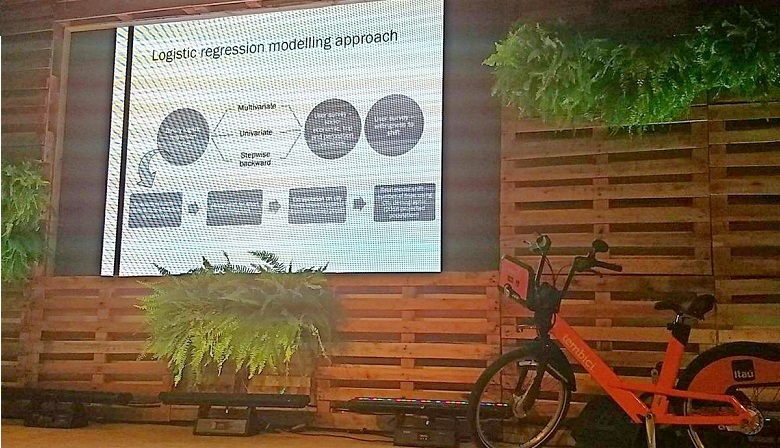
Velo-city day 3: Bike sharing as an essential component for intermodality
After an inspiring opening Plenary focused on intermodality, there was an interesting session on bike sharing, and how it can integrate and complement public transport, to create a real intermodal city.
Bianca Maçedo, Municipal Secretary for Conservation and Public Services in Fortaleza, Brazil, moderated some insightful presentations on different case studies of how the integration between public transport and bike sharing have worked.
The first to take the floor was Ivan de la Lanza, Manager of pedestrian and cycling mobility at the World Resources Institute. At WRI, Ivan has been working a lot with bike sharing as an effective tool to attract new users to cycling and for greater and deeper integration with public transport. They even created a framework to help cities financing sustainable mobility solutions, among which bike sharing scores well on all indicators: “We cannot only focus on the economic aspects of bike sharing. In Mexico City, the Ecobici system increased cycling modal share by 10% in two years, with all the impressive social, economic, health and environmental benefits this shift has. All this has to be taken into account when assessing the success of a system”.
After him it was the turn of Lina Lopez, member of the Active Mobility team of the Metropolitan Area of the Aburrá Valley: “Bike sharing has been a real revolution world-wide, and it has experienced a growth curve similar to that of smartphones. Our system in Medellin, called EnCicla, has been designed to be integrated since the beginning with both a physical and digital integration, and the results are very satisfying”.
Mariel Figueroa, Coordinator of the bike sharing system in Rosario, Argentina, and among the founders of the Platform for Latin American Bike Sharing, then presented the great – and successful – work they have been doing in Rosario: “Not all cities are ready to get bike sharing systems. And not all of the ones that are ready really ask themselves the right questions before starting the operations. We have seen a lot of systems coming and going in South America, and one can easily recognise the city administrations that did all the preparatory work well: because those systems are still standing. The good news is that these are all problems that can be fixed and with the Platform for Latin American Bike Share we want to make that information accessible to all”.
Finally, a geographical leap brought us to the other side of the world: India. Parvesh Kumar, Head of Innovations at iTrans. Parvesh presented the enlightening results of his PhD research on cycling in Pune: “Integrating bike share with public transit systems (Bus system in Pune) can realize consistent benefits for the city and the users, which go beyond the simple economic assessment. The analysis has shown significant reduction in pollution (up to 78%), congestion (around 20%), fuel consumption (up to 80%), parking demand (54%) and investment in MV infrastructure (53%) in the city, if the bike share system is available for short trips (0-5km) and integration with existing public transit system.
“We also found that the visibility bike share provided to cyclists and the modal shift it allows, helped in reducing cyclists’ fatalities from 3% to 0.7%. We basically proved and expanded the slogan Safety in Numbers”, he concluded.
Topics:
Contact the author
Recent news!
Upcoming events
Contact Us
Avenue des Arts, 7-8
Postal address: Rue de la Charité, 22
1210 Brussels, Belgium









